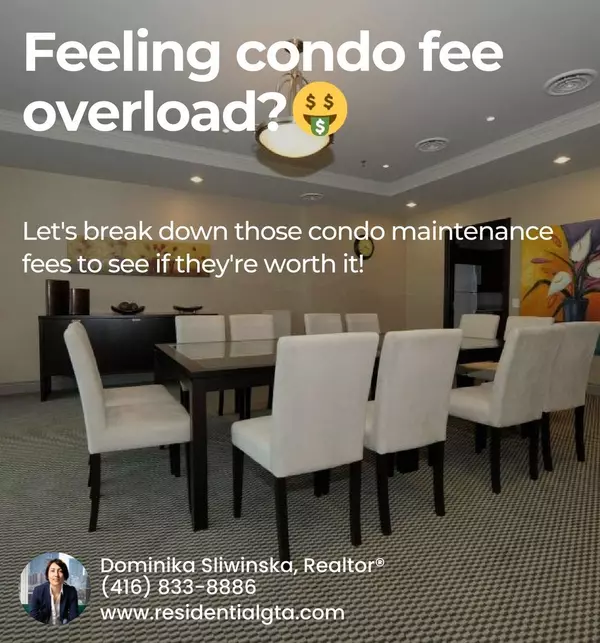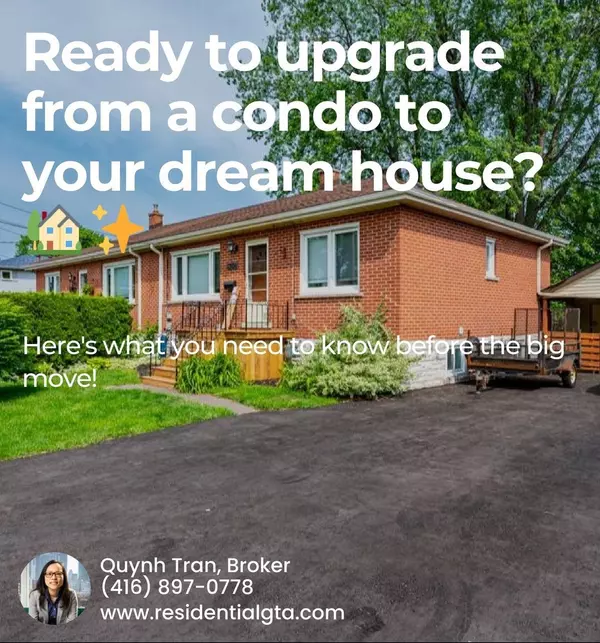Discover How Much You Can Save: Suburbs vs. Downtown Toronto Living Costs Unveiled!
Living in Toronto is exciting, but it can also be very expensive. For couples currently living in a condo in downtown Toronto, moving to the suburbs can offer significant savings. This blog explores the key factors to consider—housing costs, transportation, and lifestyle expenses—so you can make an informed decision about making the big move.
Budgeting Breakdown: How Your Housing Choice in Toronto Impacts Your Wallet
1. The Cost of Housing: Downtown vs. Suburbs
Living downtown often means higher rent or mortgage payments. Condos in the city can be pricey, with the average downtown condo costing around $700,000. In contrast, homes in the suburbs like Markham or Mississauga offer more space for less money. A suburban house could cost you about $900,000, but it will be a larger property with a yard, offering more comfort for your family.
Example:
- Downtown Condo: $700,000 for a 700 sq. ft. condo
- Suburban House: $900,000 for a 2,000 sq. ft. home with a yard
2. Property Taxes and Utilities
Property taxes can also vary. Downtown properties usually have higher property taxes per square foot compared to suburban homes. Utilities may cost more downtown due to the older infrastructure and higher energy rates. Suburban houses may have higher heating costs, but modern construction often means better insulation and energy efficiency.
Example:
- Downtown Condo: $400 monthly for property taxes and utilities
- Suburban House: $500 monthly for property taxes and utilities
3. Transportation Costs
Getting around Toronto is a major expense to consider. Living downtown means proximity to work, entertainment, and amenities, which might save you on transportation costs. However, the cost of parking and the potential need for less frequent car use (or no car at all) should be considered. On the flip side, suburban living might require a car, leading to higher transportation costs such as gas, maintenance, and insurance.
Example:
- Downtown Condo: $150 monthly for TTC pass, occasional Uber
- Suburban House: $500 monthly for car loan, gas, maintenance, and insurance
4. Grocery and Dining Costs
Grocery prices can vary between downtown and the suburbs. Downtown shops often have higher prices due to their central location. Dining out can also be more costly downtown, with trendy restaurants and cafes charging more for the experience. Suburban areas tend to have large grocery stores with better deals and a more relaxed dining scene.
Example:
- Downtown Condo: $800 monthly for groceries and dining out
- Suburban House: $600 monthly for groceries and dining out
5. Entertainment and Lifestyle
Living downtown puts you in the middle of the action, with access to theaters, clubs, and events. This convenience comes at a higher cost, as entertainment and leisure activities downtown tend to be pricier. Suburban areas, while quieter, offer family-friendly activities like parks, local events, and recreational centers, often at a lower cost.
Example:
- Downtown Condo: $200 monthly for entertainment and leisure
- Suburban House: $100 monthly for entertainment and leisure
Actionable Steps to Make the Move
1. Assess Your Priorities and Needs
If you need more space, a yard, and a family-friendly environment, suburban living might be for you. Consider the importance of proximity to work and amenities. Make a list of must-haves and nice-to-haves to help guide your decision-making process.
2. Calculate the True Cost of Living
Use online calculators to compare the overall cost of living in different areas. Consider all expenses, including housing, transportation, groceries, and entertainment. This will give you a complete picture of the financial impact of moving.
3. Visit Suburban Neighborhoods
Take the time to visit potential suburbs during different times of the day and week. This helps you get a feel for the area, check out local amenities, and see if it fits your lifestyle. Talk to current residents to get their insights.
4. Consider Long-term Investment
Think about the long-term benefits of suburban living. Properties in the suburbs often appreciate over time, potentially increasing your investment's value. Additionally, the quality of life improvements—more space, less noise—can be invaluable.
5. Work with a Real Estate Expert
Consult a real estate agent who specializes in helping couples transition from downtown condos to suburban homes. They can provide you with valuable market insights, help you find the best deals, and guide you through the buying process.
Real-World Application: A Step-by-Step Guide
1. List Your Condo: Start by listing your downtown condo with a reputable real estate agent. Make sure to highlight its best features and invest in staging to attract potential buyers.
2. Set Your Budget: Determine your budget for a new home in the suburbs, considering the proceeds from your condo's sale and any additional savings you can use for the down payment.
3. Explore Financing Options: Get pre-approved for a mortgage to understand how much you can afford. Look into different lenders and interest rates to find the best deal.
4. Visit Potential Homes: Schedule visits to homes in various suburbs, paying attention to the commute, local schools, and community facilities.
5. Make an Offer: Once you find a home you love, work with your agent to make a competitive offer. Be prepared to negotiate and consider contingencies like home inspection results.
6. Prepare for the Move: Plan your move carefully, considering the logistics of relocating from a condo to a house. Hire a reputable moving company and allocate time for packing and unpacking.
Conclusion
Choosing between downtown Toronto and the suburbs involves many factors, from housing costs to lifestyle preferences. By carefully assessing your needs, calculating total living costs, and working with experts, you can make a well-informed decision that offers both financial savings and an enhanced quality of life. Suburban living may present numerous benefits, from additional space to a quieter environment, making it a great option for couples looking to move out of their downtown condos.
Categories
Recent Posts










